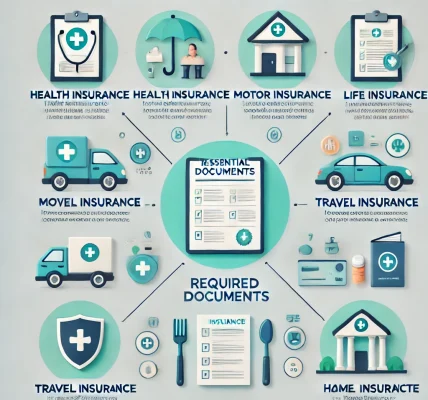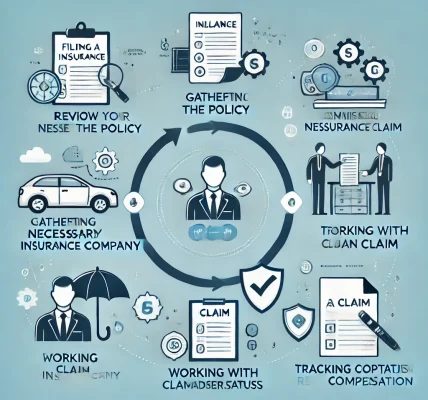Filing an insurance claim can be a complex and stressful process, but with the right approach, you can maximize your payout legally. Many policyholders lose out on compensation simply because they don’t understand their rights or make avoidable mistakes. This guide will help you navigate the claim process effectively, ensuring you receive the maximum payout without violating any legal boundaries.
1. Understand Your Policy Thoroughly
Before filing a claim, it’s crucial to understand your insurance policy terms, coverage limits, and exclusions.
✅ Do This:
- Read your policy carefully, focusing on coverage limits, deductibles, and exclusions.
- Clarify any confusing terms with your insurance agent.
- Request a full policy document if you don’t have one.
❌ Avoid This:
- Assuming all damages are covered without checking your policy.
- Overlooking special conditions that might limit your payout.
- Ignoring deadlines for filing claims.
2. Report Your Claim Promptly
Delays in filing a claim can lead to denials or reduced payouts.
✅ Do This:
- Report your claim as soon as possible after the incident.
- Gather all necessary information before contacting your insurer.
- Keep a record of your claim reference number and adjuster’s contact details.
❌ Avoid This:
- Waiting too long to report the damage.
- Providing incomplete or inaccurate details initially.
3. Document Everything
The more evidence you have, the stronger your claim will be.
✅ Do This:
- Take high-quality photos and videos of the damage immediately.
- Keep receipts of repairs, medical bills, and other related expenses.
- Record names and contact information of witnesses (if applicable).
❌ Avoid This:
- Relying solely on verbal statements.
- Losing track of receipts and repair estimates.
4. Communicate Clearly with Your Insurance Company
How you talk to your insurer can impact the outcome of your claim.
✅ Do This:
- Provide factual and clear information about the incident.
- Maintain a professional and polite tone in all conversations.
- Request written confirmation of important discussions.
❌ Avoid This:
- Admitting fault without proper assessment.
- Guessing or speculating about the cause of damage.
- Giving recorded statements without preparation.
5. Get Independent Repair Estimates
Insurance adjusters may undervalue your damages to save costs.
✅ Do This:
- Get at least two to three independent repair estimates.
- Compare the estimates with what the insurance adjuster provides.
- If the adjuster’s offer is too low, negotiate using independent assessments.
❌ Avoid This:
- Accepting the first offer without question.
- Relying only on the insurance company’s preferred vendors.
6. Negotiate Your Settlement Smartly
Your first settlement offer is rarely the best one.
✅ Do This:
- Politely request a higher settlement if you believe you deserve more.
- Provide evidence (bills, estimates, and policy details) to justify your demand.
- If necessary, hire a public adjuster to assist in negotiations.
❌ Avoid This:
- Accepting the first offer without negotiation.
- Signing anything you don’t fully understand.
- Being rude or uncooperative with your adjuster.
7. Beware of Common Insurance Tactics
Insurance companies may use tactics to reduce or deny claims.
✅ Do This:
- Be aware of deliberate delays, unnecessary paperwork, and confusing jargon.
- Stay persistent and follow up regularly.
- Keep records of all communication with your insurer.
❌ Avoid This:
- Accepting a denial without understanding why.
- Falling for intimidation tactics or rushed decisions.
8. Know When to Seek Professional Help
Some claims are too complex to handle alone.
✅ Do This:
- Consult a public adjuster for a fair assessment.
- Seek legal advice if your claim is wrongfully denied.
- Consider an insurance dispute resolution expert if needed.
❌ Avoid This:




